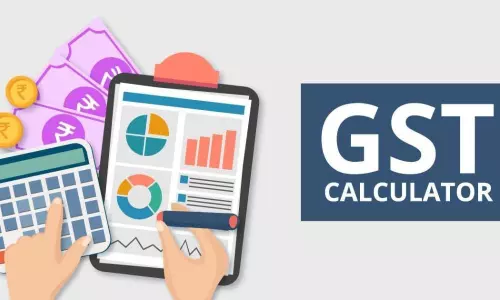One of the most important aspects that every business owner needs to understand is taxation. In India, one of the key taxes that businesses need to contend with is the Goods and Services Tax (GST). Understanding how to calculate GST accurately is crucial, as errors can lead to financial complications and legal issues. Thankfully, tools like the GST calculator have made this process much simpler and more efficient.
Understanding GST and Its Impact on Business
GST, which stands for Goods and Services Tax, is a tax on goods we buy and services we use. It replaced a bunch of older taxes, making the system easier to understand. For businesses, it means they have to pay taxes when they sell things or offer services to customers. This tax applies to almost everything we buy or use, depending on different tax rates. Understanding GST is important for businesses so they can follow the rules and charge the correct amount of tax.
Different Kinds of Goods and Services Tax
There are several categories of GST that businesses need to be aware of:
Central GST (CGST):
This tax is for goods and services traded within the same state. It goes to the central government.
State GST (SGST):
This tax is similar to CGST but goes to the state government. It’s for goods and services sold within the state.
Integrated GST (IGST):
This tax applies when goods and services move between different states. It’s a combination of CGST and SGST and goes to the central government.
Union Territories GST (UTGST):
This tax is for goods and services in specific Union Territories. It’s like SGST but for Union Territories.
Understanding these categories is essential for businesses operating across different regions and dealing with interstate transactions.
How is GST Calculated?
Calculating GST involves understanding its complex formulae.
Add GST:
GST value = (Original cost x GST%)/100
Net price = Original cost + GST amount
Conversely, when removing GST from the total amount, the formula is slightly more complex:
Remove GST:
GST amount = Original cost – [Original price x {100/(100+GST%)}]
Net price = Original cost – GST amount
Let’s illustrate this with an example:
Suppose you run a small retail business selling shoes. You purchase a pair of shoes for Rs. 1000 with a GST rate of 18%.
To calculate the GST amount:
GST value = (1000 x 18)/100 = Rs. 180
Net price = 1000 + 180 = Rs. 1180
To reverse calculate the original cost from the total amount:
GST amount = 1180 – [1180 x {100/(100+18)}] = Rs. 180
Net price = 1180 – 180 = Rs. 1000
The Role of GST Calculator
The advent of technology has upgraded various aspects of business operations, and taxation is no exception. Amidst the complexities of GST calculations, GST calculator have become increasingly pivotal.
Mistakes in GST calculations can lead to financial discrepancies, compliance issues, and even legal ramifications. This is where GST calculators shine. By simply inputting the original cost and the applicable GST rate, these calculators swiftly generate the GST amount and the net price. This process saves time and significantly reduces the likelihood of errors.
For small and medium enterprises (SMEs), adherence to tax regulations is non-negotiable. SMEs often operate with limited resources and manpower, making manual calculations prone to errors and inefficiencies. By integrating GST interest calculators into their operations, businesses can ensure compliance with tax laws while optimising their financial processes.
Moreover, the use of GST calculators fosters financial integrity. Maintaining transparent and accurate financial records is essential for building trust with stakeholders, including customers, investors, and regulatory bodies. By using technology to automate GST calculations, businesses demonstrate their commitment to financial transparency and accountability.
Furthermore, GST calculators offer versatility and adaptability to diverse business scenarios. Whether it’s a retail operation, manufacturing facility, or service-oriented business, these calculators can accommodate various types of transactions and GST rates. This flexibility allows businesses to manage complex taxation with ease, regardless of their industry or scale of operations.
Beyond simplifying day-to-day operations, the use of GST calculators empowers businesses to make informed financial decisions. By gaining instant insights into the tax implications of different transactions, businesses can optimise pricing strategies, manage cash flow effectively, and identify opportunities for growth. This data-driven approach to taxation enhances the overall financial health and resilience of SMEs, enabling them to thrive in dynamic market environments.
In conclusion, handling the intricacies of tax calculations, especially GST, is essential for the smooth functioning of any business. With tools like the GST calculator, businesses can streamline their tax-related processes, minimise errors, and ensure compliance with regulatory requirements. By understanding the fundamentals of GST and embracing technology-driven solutions, business owners can focus their energies on growth and innovation rather than being bogged down by tax complexities.












